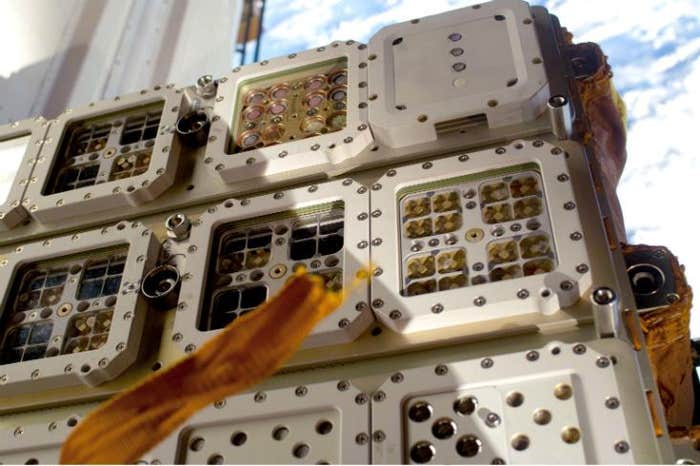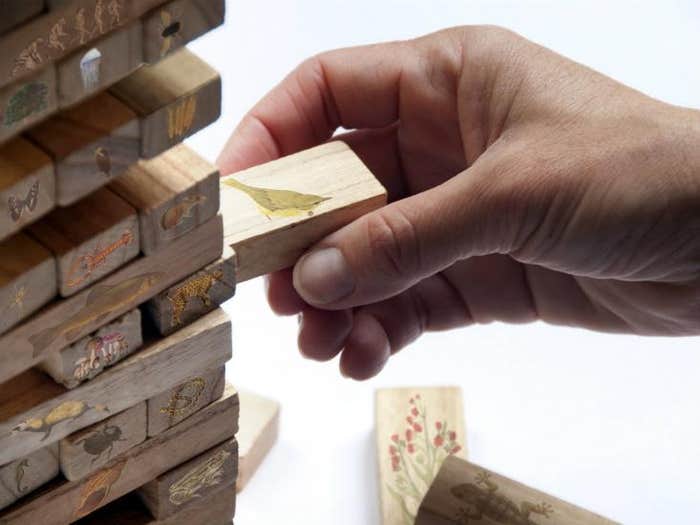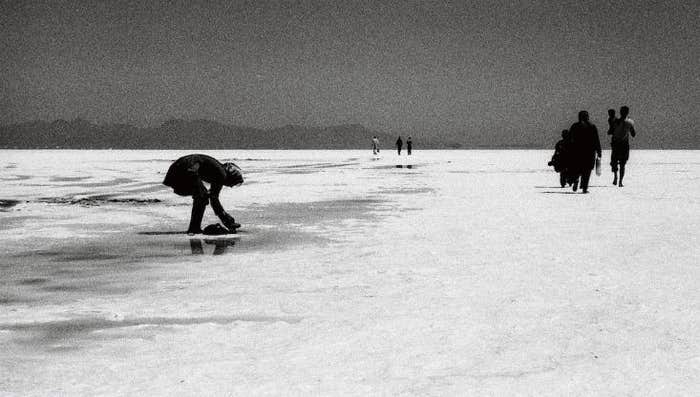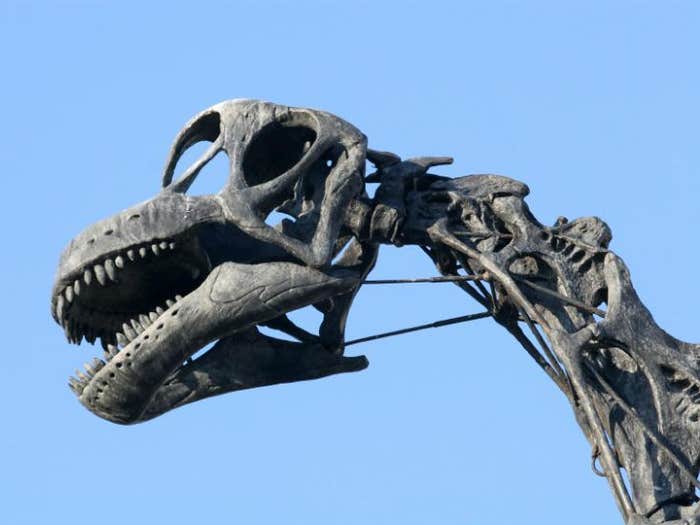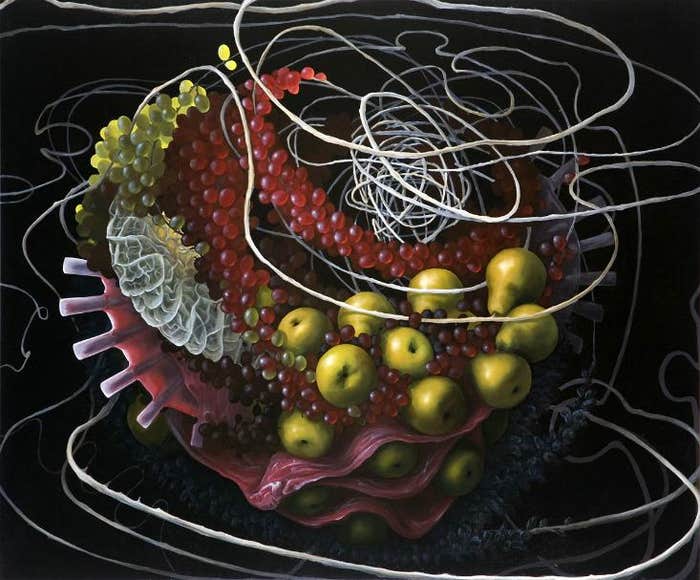Issue_16
28 articles-
The Few Tough Species That Survive the Rigors of Nothingness
The Expose-R module attaches to the ISS and holds samples in the harsh conditions of space.NASA Nautilus Members enjoy an ad-free experience. Log in or Join now . In the 1800s, scientists imagined that life was brought to Earth by a rock that had been knocked off of a distant, life-filled planet. Now, over 100 […] -
Why “Hawking Radiation” Was Almost “Feynman Radiation”
Nautilus’ Ingenious this month, Alan Lightman, is a successful writer and physicist, and one of the very rare people to receive an appointment in both science and humanities at MIT*. He did his doctoral research at Caltech while Richard Feynman was a professor there. One day, Lightman was on hand to see the brilliant and […] -
If Half of All Species Go Extinct, Will One of Them Be Us?
Biodiversity JengaMartin Sharman Nautilus Members enjoy an ad-free experience. Log in or Join now . How many animal species do you think go extinct every year? Last week I conducted a highly unscientific polling of around 20 of my Facebook and Google Chat contacts, asking that same question. I’m not trying to brag, but I […] -
Iran’s Great, Dying Salt Lake
As Urmia dries up, it leaves huge salt beaches behind.Giulio M via Flickr Nautilus Members enjoy an ad-free experience. Log in or Join now . The last time my cousin Houman traveled to Lake Urmia was 10 years ago. He and four of his friends piled into his car and drove for roughly 12 hours, […] -
How a Mental Disorder Can Disappear from the World Overnight
The dinosaur long ago renamed “Apatosaurus” is still often called “Brontosaurus.” stevegeer via iStock Nautilus Members enjoy an ad-free experience. Log in or Join now . Over the past few decades, autism and Asperger syndrome have become prominent in the public consciousness, and that prominence has been reflected in popular art and entertainment. Autism, a […]
-
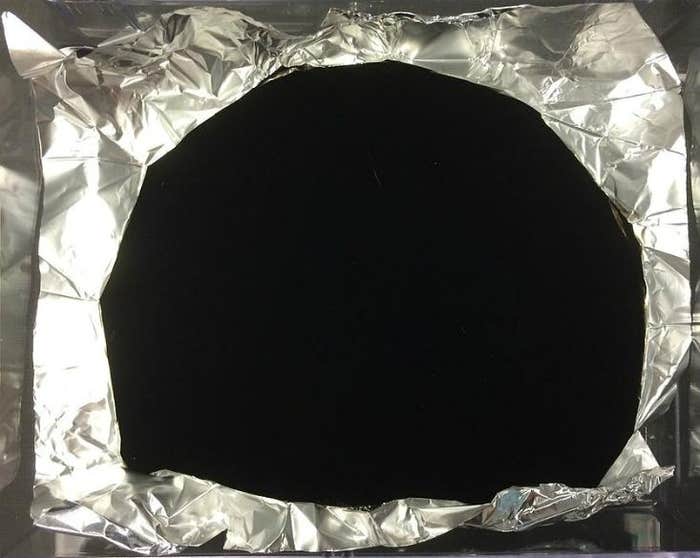
A Material So Dark That It Looks Like a Black Hole
Even when applied to a highly reflective surface like aluminum foil, Vantablack renders the entire surface, including creases, all but invisible.Surrey Nanosystems via Wikipedia Nautilus Members enjoy an ad-free experience. Log in or Join now . Color is such a powerful and evocative sensation—one of the first that we learn to describe as children—that we […]
-

The Woods That Time Forgot
In the Mist, a film about a Canary Island forest, opens the archives of Earth’s history.
-
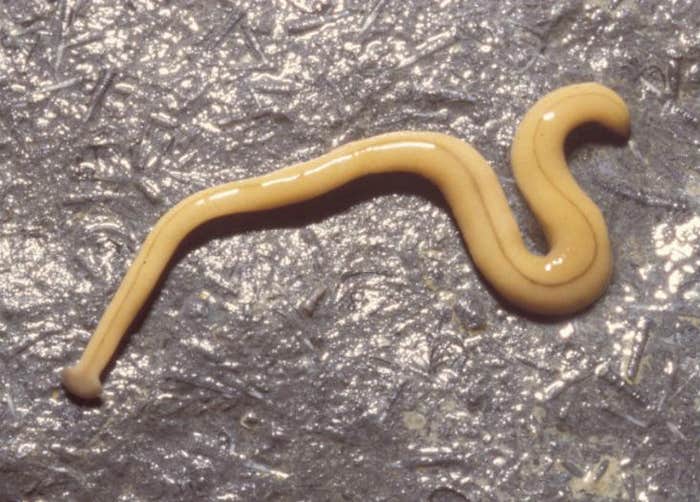
The Pufferfish’s Lethal Poison Shows Up Right Under Our Feet
A flatworm that lives in soil and uses TTX to hunt down much larger earthwormsPeter Ducey Nautilus Members enjoy an ad-free experience. Log in or Join now . Lurking in the soil, even under a most peaceful and well-nurtured garden, is a surprisingly fierce predator: Bipalium adventitium, an invasive flatworm that began appearing in the […]
-

Why Do Amputees Feel the Ache of Nothingness?
An amputation guide for surgeons from 1739The Hagströmer Medico-Historical Library Nautilus Members enjoy an ad-free experience. Log in or Join now . For amputees, it’s adding insult to injury. They’ve already lost pieces of themselves that they thought they could always count on, limbs that they first discovered while waving the chubby things in their […]
-
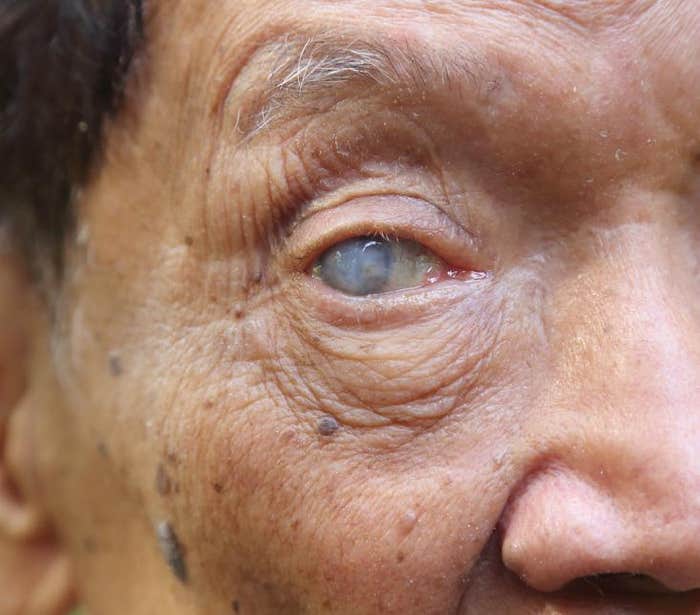
What Do Blind People Actually See?
To try to understand what it might be like to be blind, think about how it “looks” behind your head.
-
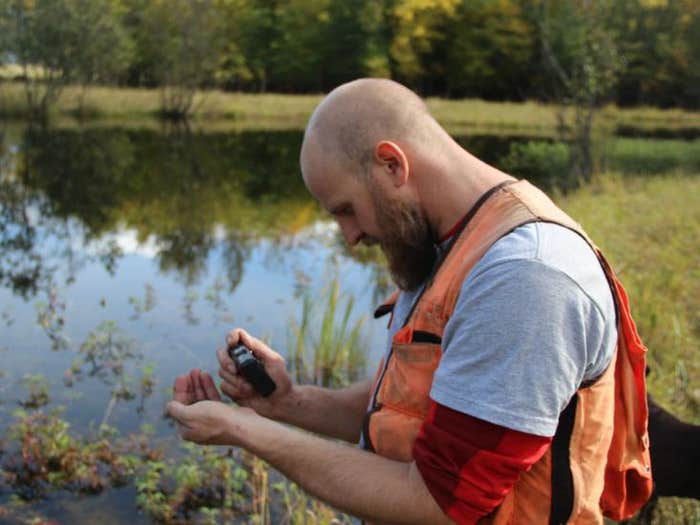
Searching for Disappearing Species in the US’ Deepest Wilds
Michael Lucid photographs samples found during the Multispecies Baseline Initiative (MBI).Ben Goldfarb Nautilus Members enjoy an ad-free experience. Log in or Join now . In 2010, Michael Lucid, a biologist with the Idaho Department of Fish & Game, captured a surprise in a beer-baited gastropod trap—a slug that didn’t genetically resemble any of the ones […]
-
Why Your Cat Doesn’t Have a Sweet Tooth
Moles don’t see, whales can’t smell, and snakes can’t hear a thing. -
“Molecular Still Lives” Show the Science in Our Food in Us
Still Life with Gastric PeptideMia Brownell Nautilus Members enjoy an ad-free experience. Log in or Join now . My grandfather wasn’t a big farmer, but his small garden in Kentucky was a miracle. There was rhubarb, corn, and peppers a-plenty, but mostly I remember the tomatoes. He bred his own, saving the seeds of the […] -
Angst and the Empty Set
We can experience nothingness, but does it actually exist? -
A Complicated Question
A child asks, and war answers. -
An Atheist’s Guide to Spirituality
“I did not have to believe anything irrational about the universe.”















